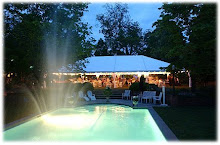Lee Becker has completed what has to be the most detailed local election analysis in state history. He maps correlations and voting patterns between candidates and teases out some interesting facts. The big take away supports my contention all along: that this election was about growth, not alcohol. Most voters -- especially those in South Oconee -- seem to want to slow down the growth train in a major way.
I have been thinking a lot about growth lately, since I have been driving to Atlanta a bit more than usual (driving through Atlanta and Gwinnett always makes me think about growth, good and bad). A conclusion I am reaching is that there is something about a consistent, sustainable rate of growth that leads to more healthy communities (defined primiarly by sustainable and stable neighborhoods, long term value, and non-deteriorating commercial nodes). Perhaps in Oconee we need to see out our historic growth numbers -- 4, 5, 6% or whatever -- and seek to match that, both in terms of population growth and lots platted.
Almost every area that I pass through that has had abnormally rapid growth also sees a rapid decline years later. Even within similar geographic areas, this occurs. A great example is Gwinnett, which had the growth wave march outward 20+ years ago. Cars clog roads and students clog schools. Governments are then forced to permit high-density apartments and questionable commercial to "balance the tax base." It seems that after one generation of families (or 20+ years), deterioration of those neighborhoods begins. Similar trends can be seen in areas in South and West DeKalb, eastern Rockdale and Douglas County.
Fundamental principles in neighborhoods that seem to stand the test of time are high quality residential building standards, quality landscaping, established infrastructure (rather than building infrastructure after traffic was already bad), and neighborhood schools. You can also see these principles at work in Athens, Gainesville, Rome and other cities. Thoughts?
Sunday, August 17, 2008
Oconee Election Analysis and Growth
Labels:
economic development,
growth,
housing,
local politics,
oconee,
politics,
regional
Subscribe to:
Post Comments (Atom)




No comments:
Post a Comment